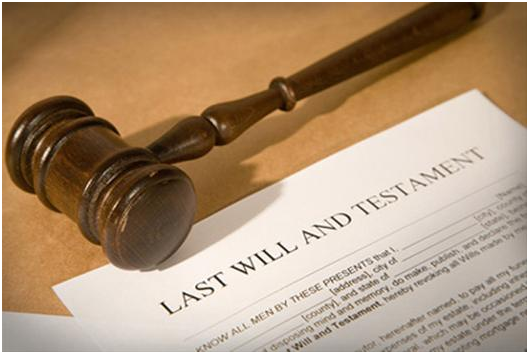
When a life estate and will conflict, the life estate typically will take precedence. That having been said, there are limited circumstances in which the opposite may be true.
Suppose a property owner improperly executes a deed granting his longtime partner a life estate in his property. However, after the deed is successfully challenged for improper execution, the property is transferred to the decedent’s estate, where it will be governed by their will. In this way, a will may be regarded as “overriding” the life estate. If you’re unsure whether a life estate or will takes priority in a particular situation, it’s essential to remember that, in most cases, a property owner cannot just reclaim a life estate by will without the life tenant’s consent.
What Is a Life Estate?
When a property owner grants someone a life estate in their property, they are entitling that person (called the life tenant) to reside in and use the property for the duration of their life, while also entitling other persons (called remaindermen) to gain full ownership of the property after the life tenant’s death or permitting themselves to retain the remainder interest in the property.
For example, if a property owner wishes for her spouse to reside in and use her property for the remainder of his life, while also wishing for her child to inherit the property once her spouse dies, creating a life estate could help satisfy both her desires.
A life estate is typically created in one of two ways: by deed or by an estate planning document (such as a will or a trust). The implications of a life estate created by a deed may be different from the implications of a life estate created by way of a will.
A life estate created by a deed is a legally binding agreement that takes effect upon being signed and delivered. The life estate deed grants the life tenant the immediate right to reside in, and exert certain rights of ownership over, the property. Once the life tenant dies, full ownership of the property will automatically transfer to the remaindermen.
On the other hand, a life estate created by a will doesn’t take effect until after the property owner dies. In other words, the life tenant won’t have any right to reside in or use the property until the property owner’s death. That said, a will doesn’t become legally binding until its creator dies. Therefore, even if a life estate is created by will, it can be changed or removed by the will creator during their lifetime, provided they have the mental capacity required to alter their will.
For remaindermen, it typically doesn’t matter whether a life estate is established through a deed or a will, as they won’t gain ownership of the property until the life tenant dies, but in the case of a will, they also must wait until the testator dies. While there may be exceptions, they are uncommon.
It’s important for life tenants to bear in mind that being granted a life estate in a property comes with its fair share of responsibilities. Life tenants must maintain and protect the property, as well as satisfy any outstanding financial liabilities it has, including mortgage payments and property taxes. Failing to fulfill these obligations could be considered “waste,” giving the remainderman a right to sue the life tenant for damages.
Life tenants also have significant restrictions as far as what they can do with a property. For instance, while life tenants can lease their property and make improvements to it, they cannot sell, transfer, or pass on the property to beneficiaries in their will or trust.
How Does a Life Estate Compare to Fee Simple Ownership?
A life estate is a more restrictive form of ownership than fee simple ownership. Owning a property fee simple means you have the most comprehensive form of property ownership. In other words, if you have fee simple ownership of a property, it means you can use, lease, sell, transfer or leave the property to beneficiaries in your will or trust.
Remaindermen are usually fee simple property owners, whereas life tenants are not. A remainderman, for example, has the right to transfer their inherited property to another person or even grant another person a life estate in the property, but they typically only have such rights after the life tenant dies.
Can a Life Estate Be Terminated After Death?
It may be possible to have a life estate prematurely terminated under certain circumstances. For example, if a life tenant breaches their duty of care by allowing the property to fall into disrepair, their failure to fulfill their obligations could be regarded as them committing “waste,” which may result in their having to relinquish their life estate in the property.
Life estates can also be terminated through other means. For example, the life tenant and remainderman could mutually agree to terminate the life estate. In this situation, the remainderman may offer the life tenant financial compensation for relinquishing their life estate in the property. In the same vein, a life estate could be terminated if the life tenant and remainderman mutually agree to sell the property and divide proceeds between them.
The court can terminate a life estate as well. For example, if it can be demonstrated a life estate was created as a result of the original property owner being subjected to undue influence or fraud, the court may move to terminate the life estate on account of it having been derived through unlawful means. The court also could move to terminate a life estate if evidence confirms it was established by a property owner who lacked mental capacity.
Can a Life Estate Be Contested?
Contesting a life estate can be a complex legal undertaking because of the legally binding nature of the arrangement.
To establish a life estate, clear documentation (e.g., a deed or will) is required. Unless strong evidence is presented to show the decedent’s expressed final intentions are not a reflection of their true final intentions, the court generally defaults to upholding the original property owner’s intentions as they are stated in their life estate deed or will.
Valid grounds for contesting a life estate include:
- Undue Influence: Excessive persuasion or pressure was exerted on the decedent to cause them to override their own free will when establishing a life estate in their property.
- Fraud: The decedent was intentionally deceived or misled by someone to establish a life estate for their personal gain.
- Lack of Capacity: The decedent lacked the mental capacity required to establish a life estate.
- Forgery: Someone falsified the decedent’s signature on a life estate deed or will.
- Mistake of Fact: The decedent misunderstood the nature of the life estate deed or the implications of creating a life estate.
- Lack of Due Execution: The decedent failed to take the proper steps to establish a life estate.
When a life estate is successfully contested, ownership of the property may transfer to the decedent’s estate, where it will be distributed according to the terms of the decedent’s will (if it’s valid) or intestate succession laws (if no valid will exists). Depending on the nature of the life estate and which aspects of it are problematic, there’s also a possibility it could pass directly to the remainderman.
When Might a Will Override a Life Estate?
A will doesn’t override a life estate, per se. Rather, if a life estate is terminated for being invalid to begin with or due to the life tenant committing “waste,” it could cause the property at issue to transfer to the decedent’s estate and be distributed according to the terms of their will.
The life estate created by a new will contradicts the life estate created by a prior will.
A life estate can sometimes be created through a will instead of a life estate deed. In such an instance, if the new will establishes a life estate that contradicts the life estate created by a previous will, the new will may take precedence over the old one, provided it is deemed valid and revokes the prior will.
The life estate is successfully contested.
If a life estate is successfully terminated — whether due to the life tenant breaching their duties or because the life estate is proven invalid — it may cause the property at issue to transfer to the decedent’s estate and be distributed according to the terms of the decedent’s will (provided it’s valid) or intestate succession laws (provided no valid will exists).
FAQs: Life Estates vs. Wills
If you continue to have questions surrounding life estates and wills, explore Keystone’s frequently asked questions below to gain further clarity.
Remember, our firm is available to provide personalized guidance if you have specific questions or concerns that were not addressed on this page.
Do homestead protections supersede life estates?
Yes, homestead protections can potentially supersede life estates if the decedent’s surviving spouse and dependents regard the property as their primary residence and have a legal right to occupy the property under California’s homestead laws.
Suppose a decedent grants a life estate to his sister. If the property at issue is the primary residence of the decedent’s spouse and children, California’s homestead protections could take precedence over the terms of the life estate, preventing the sister from taking ownership of the property.
Is a right of occupancy the same as a life estate?
No, a right of occupancy is not the same as a life estate, as an occupant of property has far fewer rights than a life tenant. Put simply, an occupant doesn’t own the property in the same way a life tenant does. They just have a right to use and enjoy the property for the time they stay residing in it.
For instance, if someone with a right of occupancy leaves a property, they may effectively forfeit their right to use it. In contrast, a life tenant can vacate or even lease the property without jeopardizing their life estate.
Does a life estate override a trust?
Yes, a valid life estate granted during life almost always overrides a trust, since a property owner cannot retract a life estate after granting it, even by way of their trust.
For example, if a life estate deed is created before a trust, the life estate generally will prevail over the trust, since the property would already have been transferred to the life tenant or remainderman.
On the other hand, if a life estate deed is created after a trust, it’s possible the trust will prevail over the life estate if the terms of both are in conflict since the property was being held by the trust when the life estate was created, meaning that the trust controls the property.
Can a life estate shield a property from Medi-Cal recovery?
Yes, because Medi-Cal typically doesn’t regard a home as a recoverable asset if someone retains a life estate in it. It generally is shielded from Medi-Cal recovery, even if the applicant moves elsewhere.
In the same vein, if the Medi-Cal applicant was the decedent, and the property at issue was in their trust, Medi-Cal generally can’t recover. If the property was not in their trust, however, Medi-Cal can potentially assert their lien against the decedent, even if the decedent granted a life estate in the property to a beneficiary.
Keep in mind that there’s potential for Medi-Cal to recover a property after the life tenant dies, but even this could prove challenging, since the life tenant dying would mean the remainderman’s interest in the property will have vested.
Still have questions about life estates?
Navigating life estates is often complex, but having a skilled legal team on your side can make all the difference.
Our firm is exclusively dedicated to practicing probate litigation and administration. We, therefore, are highly knowledgeable in how life estates work and interact with wills.
With our in-depth understanding of life estates, we can help you achieve the legal outcomes you desire. Contact us today to discover how we can guide you with confidence and expertise.













